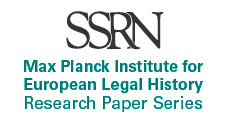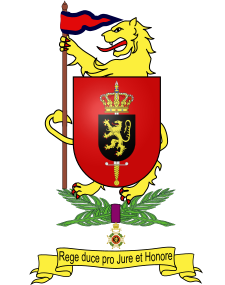(image source: rg.mpg.de)
The MPI for European Legal History published the first issue of the fifth volume on its SSRN Research Paper Series.
Paper 1
"The World of Rules: Eine etwas andere Vermessung der Welt" Gunnar Folke Schuppert, The World of Rules. Eine etwas andere Vermessung der Welt, Frankfurt am Main: Max Planck Institute for European Legal History [Global Perspectives on Legal History, in English translation, 2016, Forthcoming]
GUNNAR FOLKE SCHUPPERT, WZB Berlin Social Science Center, Independent
Email:schuppert@wzb.eu
Abstract:
German Abstract: Das Buch wendet sich gegen die Verengung der (deutschen) Rechtswissenschaft auf das staatliche Recht, eine Perspektivenverengung, die in der Entstehung des territorial organisierten Nationalstaates ihre Erklärung findet, eines Staatstyps, in dessen Staatsverständnis das Recht nur als staatliches Recht gedacht werden konnte. Was hingegen gegenwärtig – und im Prozess der Globalisierung weiter zunehmend – beobachtet werden kann, ist ein Prozess der graduellen Entkopplung von Staat und Recht, der unvermeidlich eine Pluralisierung rechtlicher Regelungen zur Folge hat. Diesem Befund muss sich eine anschlussfähig bleiben wollende Rechtswissenschaft stellen, und zwar durch eine Erweiterung ihres Horizonts zu einer weiter ausgreifenden Regelungswissenschaft, um die zunehmend größer werdende „Variety of Rules“ angemessen erfassen zu können. Staatliches Recht ist aus dieser Perspektive zwar nach wie vor ein besonders wichtiger und zentraler Typus von Recht, aber nicht mehr der einzige.Paper 2
Wenn sich dies so verhält, dann ergibt sich daraus die Notwendigkeit, die folgenden drei Bereiche genauer zu examinieren: 1. die Vielfalt der Normenordnungen, insbesondere nicht-staatlicher Art, wie standards, oder codes of conduct; 2. die Vielfalt der Normproduzenten, von der staatlichen Gesetzgebung bis zu transnationalen Regulierungsnetzwerken; 3. schließlich die Pluralität von Normdurchsetzungsregimen, von der staatlichen Justiz über die Sportgerichtsbarkeit bis zur Ausübung informalen sozialen Drucks (z.B. political correctness). Diese Pluralitätsbefunde führen unausweichlich zu dem Folgeproblem einer Neubestimmung des Rechtsbegriffs und der Frage, welche Typen von Recht sinnvollerweise zu unterscheiden sind.
English Abstract: The book positions itself against the narrowing focus of (the German) jurisprudence on state law. This is a narrowing, which find its explication in the development of the territorially organised nation state, a type of state in whose understanding of state(hood) law can only be thought of as state law. However, what can be observed – even more so as a result of the process of globalisation – is a process of a gradual decoupling of state and law, which inevitably entails a pluralisation of legal regulations. Jurisprudence has to react to this, if it wants to remain relevant. This can happen through a broadening of its horizon towards a more far-reaching “science of regulation”, in order to grasp the increasing “Variety of Rules” adequately. State law remains an important and central type of law, yet it is no longer the sole type.
If that is the case, it becomes necessary to analyse the following three spheres: (1) the plurality of normative orders, especially those of non-state character; (2) the plurality of norm producers, from state legislature to transnational networks of regulation; (3) finally, the plurality of norm enforcement regimes, from states’ judiciaries via the judiciary of (international) sport to the exercise of social pressure (e. g. political correctness). Those findings of plurality inevitably lead to the follow-up problem of a redefinition of the concept of law and to the question, which types of law/norms can be identified meaningfully.
"Convivencia: Reflections About its 'Kulturbedeutung' and Rereading the Normative Histories of Living Together"
Max Planck Institute for European Legal History Research Paper Series No. 2016-02
RAJA SAKRANI, Independent
Email: sakrani@rg.mpg.de
Abstract:
This paper covers a wide range of questions from the nearly inflationary use of the word Convivencia including the speeches of the Pope, the motto of a cultural capital in Europe, the intensive search for communal semantics in a time of heavy conflicts and bloody realities: all this can be read as an expression of an urgent need for a renaissance of times where different religions and cultures seemed to have lived peacefully together in Al-Andalus. Therefore in a first part Convivencia will be reflected between myth and methodology (I.), whereas in a second part the “Kulturbedeutung” of Convivencia will be discussed (II.). The need for models of con-vivencia must today be formulated in such dramatic way because of a real fear to drive globally towards con-mortality. A historical curiosity and a critical look at the mechanisms that explain why such a model might have functioned will lead us to the important role of a juristic figure in the normative program of the Islamic traditions; a normative legacy that was transplanted from the experience of Medina to the people conquered during Islamic expansion: dhimmitude. The interest is centered on the normative web that was woven amongst the different religious groups and to the socio-historical conditions to realize such a hidden, what I would like to call: “constitution” of Convivencia. Social practices as conubium and commensality are important practices of dealing with otherness in a non-rejecting and destroying but socially joyful way. With a strong accent on the Islamic perspective this paper tries to show how much this model is impregnated by religious ideas and also by legal concepts that need to be worked out from its historical preconditions. Finally, ten claims are formulated (part III) that will lead to new and sometimes deeper questions. We approach this field of research from an Arabo-Islamic perspective, writing the history of Convivencia in its polyphony and opening it to complementary histories of Jewish and Christian perspectives.Paper 3:
"Authenticating Marriage: The Decree Tametsi in a Comparative Global Perspective" Benedetta Albani, Paolo Aranha, Michela Catto (Hg.), Tridentine Marriage in a Global Perspective, Frankfurt am Main: Max Planck Institute for European Legal History [Global Perspectives on Legal History, 2016, Forthcoming]
Max Planck Institute for European Legal History Research Paper Series No. 2016-03
DAVID L D'AVRAY, University College London - Department of History
Email: d.davray@ucl.ac.uk
WERNER MENSKI, University of London, School of Oriental and African Studies (SOAS), School of Law
Email: wm4@soas.ac.uk
Abstract:
The article puts into perspective the Council of Trent’s attempt control entry into marriage, as well as the Catholic Church’s previous inability to do so, into a comparative perspective, by looking at similar problems in other societies






















